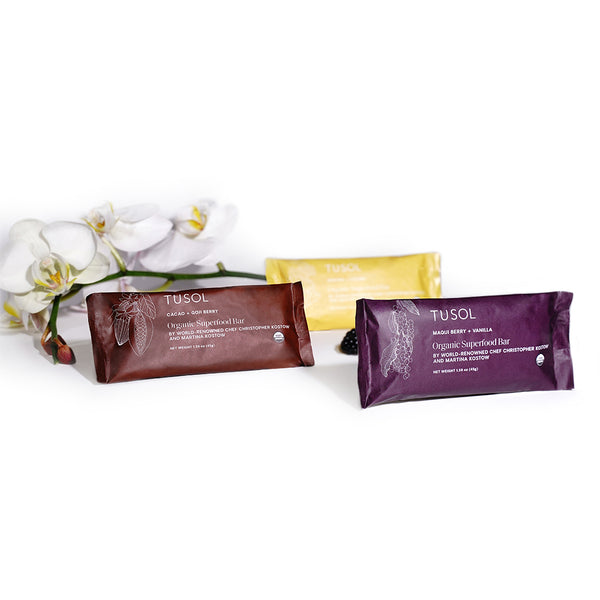When Inflammation Becomes an Issue
When the body’s cells are distressed, they emit chemicals that put the immune system on alert. The immune system transmits inflammatory cells to capture the problematic substance or heal tissue. This process causes blood vessels to leak out fluid to the injury site, spurring redness, swelling and discomfort. Unfortunately, an abundance of such inflammation, known as chronic inflammation, puts the body at an elevated state of alertness at all times. The extended state of biological emergency state has the potential to cause permanent damage to body organs including the all-important brain and heart. As an example, inflammation within the brain is problematic in that it can cause Alzheimer’s disease. These are just some examples of how chronic inflammation is a major problem that the medical community has not yet solved.Symptoms of Inflammation
How do I know if I have chronic inflammation? Inflammation leads to noticeable problems highlighted by swelling, redness on the skin and discomfort. Chronic inflammation also produces symptoms yet they are not always as clear-cut as regular inflammation. As a result, it is easy to overlook chronic inflammation. The most common signs that your body is plagued by chronic inflammation include: • General fatigue • Chest pain • Abdominal pain • Mouth sores • Fever Rashes Chronic inflammation symptoms have the potential to range from severe to mild in nature. It is possible these symptoms will last upwards of several years or only a couple months. Causes of Chronic Inflammation The extended exposure to certain irritants such as air pollution or industrial chemicals can spur lasting inflammation. Even the failure to treat the causes of acute inflammation can cause chronic inflammation. This means failing to treat a seemingly minor injury or infection has the potential to result in chronic inflammation. It is also possible for the presence of an autoimmune disorder to cause the body to errantly attack otherwise-healthy tissue in the body, leading to chronic inflammation. However, some instances of chronic inflammation do not have an obvious underlying cause. Furthermore, the causes noted above are not guaranteed to result in chronic inflammation in every single individual who experiences them. Further Reading: Chronic Inflammation And Why You Might Have ItInflammation and Disease
Chronic inflammation is a significant problem in that it is linked to the vast majority of major diseases including heart disease, cancer and even diabetes. Furthermore, inflammation is a symptom of numerous infectious diseases. Sadly, it is quite possible that chronic inflammation is tied to every non-infectious disease as well. However, there is the potential for the latest insights learned about inflammation’s role in disease to set the foundation for a resulting unified theory of disease.Inflammation and Weight Gain
As the medical community learns more about chronic inflammation, it is becoming increasingly clear medical treatments for disease, weight loss and other health maladies should zero in on preventing and mitigating chronic inflammation. Chronic inflammation causes weight gain. Furthermore, chronic inflammation also makes it that much more challenging to lose weight. However, the silver lining is alterations to diet and lifestyle have the potential to mitigate chronic inflammation, reducing the risk for weight gain as well as disease. Let’s take a closer look at how inflammation affects body weight. Once the immune system identifies a threat, the body emits cytokines that catalyze the immune system into action. Cytokines interfere with the hormone response of the body. Unfortunately, this process has the potential to cause the body to not regulate glucose as it should, causing the body to store more fat than it otherwise had. The buildup of fat in the lower part of the stomach is especially harmful as it hikes the body’s production of cytokines that elevate the risk of heart disease. Furthermore, fat along the abs is tied to a higher cancer risk. It is also particularly interesting to note inflammation can compromise the body’s ability to respond to the hormone known as leptin that communicates to the brain when enough food has been consumed. A brain that does not receive this signal will fail to communicate that food consumption should cease, ultimately leading to overeating.Inflammation and Gut Problems
Chronic inflammation causes digestive issues. In particular, chronic inflammation leads to leaky gut syndrome that harms the digestive track along with other organs. Leaky gut syndrome symptoms include diminished energy, joint pain, thyroid problems and headaches. Sadly, leaky gut syndrome has the potential to cause obesity and diabetes.Inflammation and Heart Disease
Inflammatory cells that linger in blood vessels for an extended period of time lead to the accumulation of harmful plaque. The body views plaque as a foreign substance, so it sends even more inflammatory cells, building the plaque all the more, ultimately causing the arteries to thicken, hiking the chances of a heart attack or even a stroke.Inflammation and Diet
What are some of the foods that lower inflammation? Some foods naturally cause inflammation within the human body. Vegetable oils like canola, grape-seed, sesame oils, fried foods cause free radicals to form, hiking inflammation. Vegetable oils are particularly problematic as it drives inflammation more than any other substance. It merely takes the consumption of a small amount of these polyunsaturated fats to create a harmful chain reaction within the cells, robbing the cells from oxygen, ultimately causing inflammation. Thankfully, there are some foods that decrease chronic inflammation. Those who consume vegetables and fruits with regularity and drink plenty of water flush waste and toxins out of the body. Furthermore, certain foods have particularly powerful anti-inflammation properties.Best Natural Remedies for Inflammation
Curcumin Turmeric creates the yellow hue in curry. Indians have used this medicinal herb for thousands of years. The curcumin within turmeric is a compound with medical properties that help combat inflammation. Consider taking a curcumin supplement to ensure you receive its benefits. Ideally, curcumin will be combined in unison with black pepper to help the bloodstream absorb it. Ginger Ginger, a flowering plant originally from China, is fairly similar to turmeric. The rhizome component of ginger helps facilitate digestion, minimize nausea and combat inflammation. Ginger’s natural oil known as gingerol is the plant’s primary bioactive compound. Gingerol has considerable anti-inflammatory effects. Reishi Mushroom Reishi mushrooms enhance the immune system and possibly even produce positive interactions with white blood cells that play an important role in immune system functionality. It also appears as though some forms of reishi mushrooms change white blood cells’ inflammation pathways. Chaga Mushroom Preliminary studies indicate chaga mushroom extract provides health benefits. In particular, chaga mushroom extract might enhance the immune system and combat inflammation. Test-tube and animal studies show chaga mushroom extract decreases long-term inflammation by preventing the formation of harmful cytokines that cause inflammation tied to disease. Maqui Berry It appears as though maqui berries might counteract conditions tied to inflammation ranging from diabetes to arthritis, respiratory problems and heart disease. Preliminary clinical studies and test-tube studies reveal maqui berry compounds are spur anti-inflammatory effects. TUSOL Wellness Plant Protein Smoothie Mix TUSOL Smoothies have a variety of antioxidants that are natural anti-inflammatory compounds. These superfoods containing antioxidants have been studied for thousands of years, in Ayurveda, Chinese, and Aztec medicine. Certain superfoods act like catalyst with one another. Boosting each other's properties. A great example is the combination of maca root and chaga mushroom, together they boost super oxide dismutase (SOD) --a very important antioxidant in your body that combats inflammation, and fights the presence of free radicals. The mitochondria – your energy factories – are located inside of your cells. There are approximately 2,500 mitochondria per cell. When chronic inflammation occurs, the effects include reduced glucose availability and a reduction in energy. As a result of injured cells, not much can get in and not much can get out of the cell, negatively affecting the way the mitochondria work to produce energy. Chronic fatigue, weight gain, hormone imbalance and poor mood are all symptoms of inflammation. Glucose is the preferred energy source of the brain and most of the organs in your body, including the thyroid, and liver. Without properly functioning cells, the brain does not get the appropriate amount of ATP it needs. This leaves you to forget your keys, lose your phone, etc. The CALM smoothie contains specific properties that help the body combat inflammation, and thus maintain the ability to use glucose to produce energy. The combination of curcumin and ginger has been used for centuries in Ayurveda and Chinese Medicine to reduce inflammation. CALM contains an array of anti-inflammatory ingredients like curcumin, turmeric, ginger, and enzymes to help reduce inflammation and ease digestion. Further Reading: How to Fight Oxidative Stress Naturally
TUSOL Wellness Plant Protein Smoothie Mix TUSOL Smoothies have a variety of antioxidants that are natural anti-inflammatory compounds. These superfoods containing antioxidants have been studied for thousands of years, in Ayurveda, Chinese, and Aztec medicine. Certain superfoods act like catalyst with one another. Boosting each other's properties. A great example is the combination of maca root and chaga mushroom, together they boost super oxide dismutase (SOD) --a very important antioxidant in your body that combats inflammation, and fights the presence of free radicals. The mitochondria – your energy factories – are located inside of your cells. There are approximately 2,500 mitochondria per cell. When chronic inflammation occurs, the effects include reduced glucose availability and a reduction in energy. As a result of injured cells, not much can get in and not much can get out of the cell, negatively affecting the way the mitochondria work to produce energy. Chronic fatigue, weight gain, hormone imbalance and poor mood are all symptoms of inflammation. Glucose is the preferred energy source of the brain and most of the organs in your body, including the thyroid, and liver. Without properly functioning cells, the brain does not get the appropriate amount of ATP it needs. This leaves you to forget your keys, lose your phone, etc. The CALM smoothie contains specific properties that help the body combat inflammation, and thus maintain the ability to use glucose to produce energy. The combination of curcumin and ginger has been used for centuries in Ayurveda and Chinese Medicine to reduce inflammation. CALM contains an array of anti-inflammatory ingredients like curcumin, turmeric, ginger, and enzymes to help reduce inflammation and ease digestion. Further Reading: How to Fight Oxidative Stress Naturally














